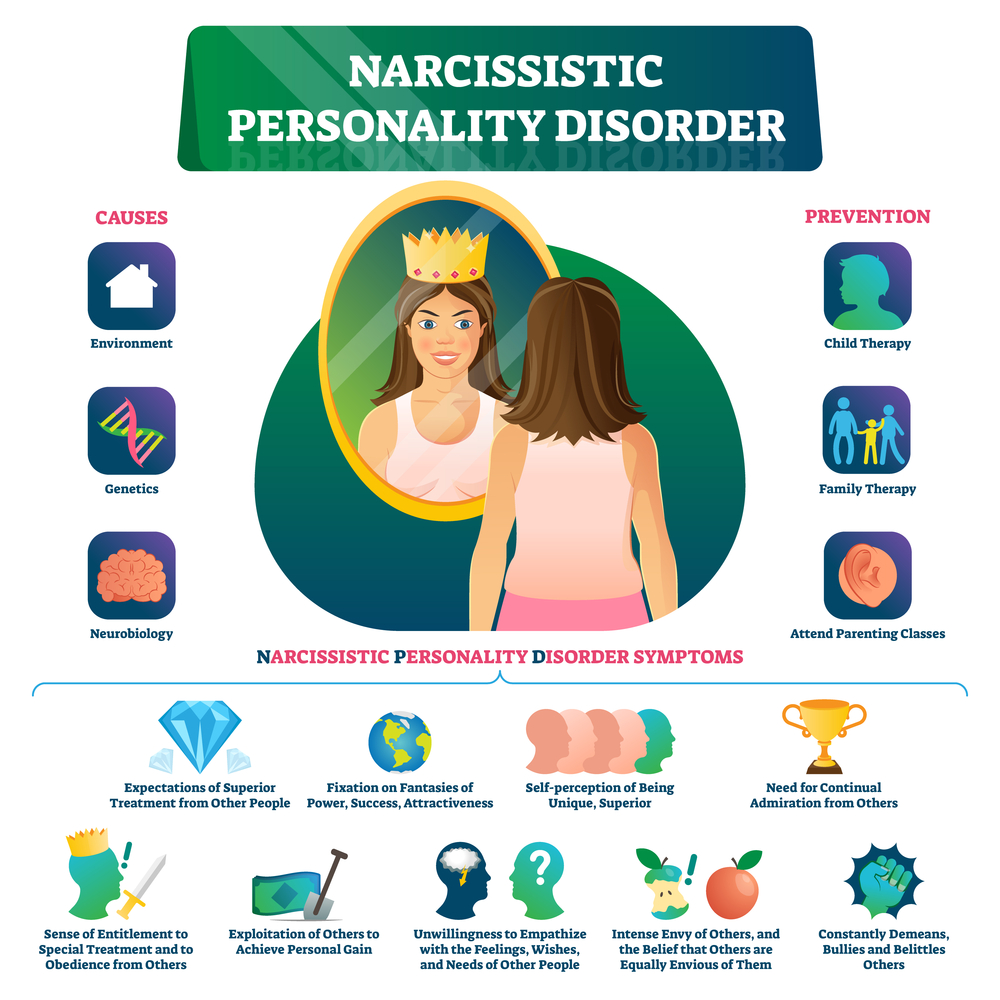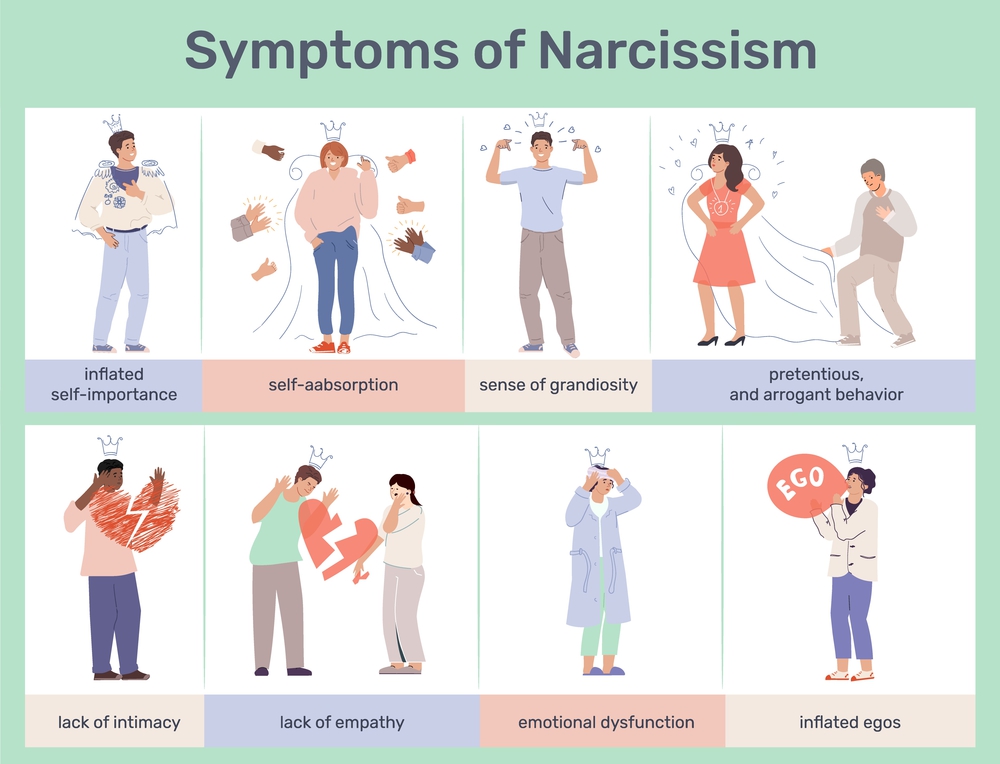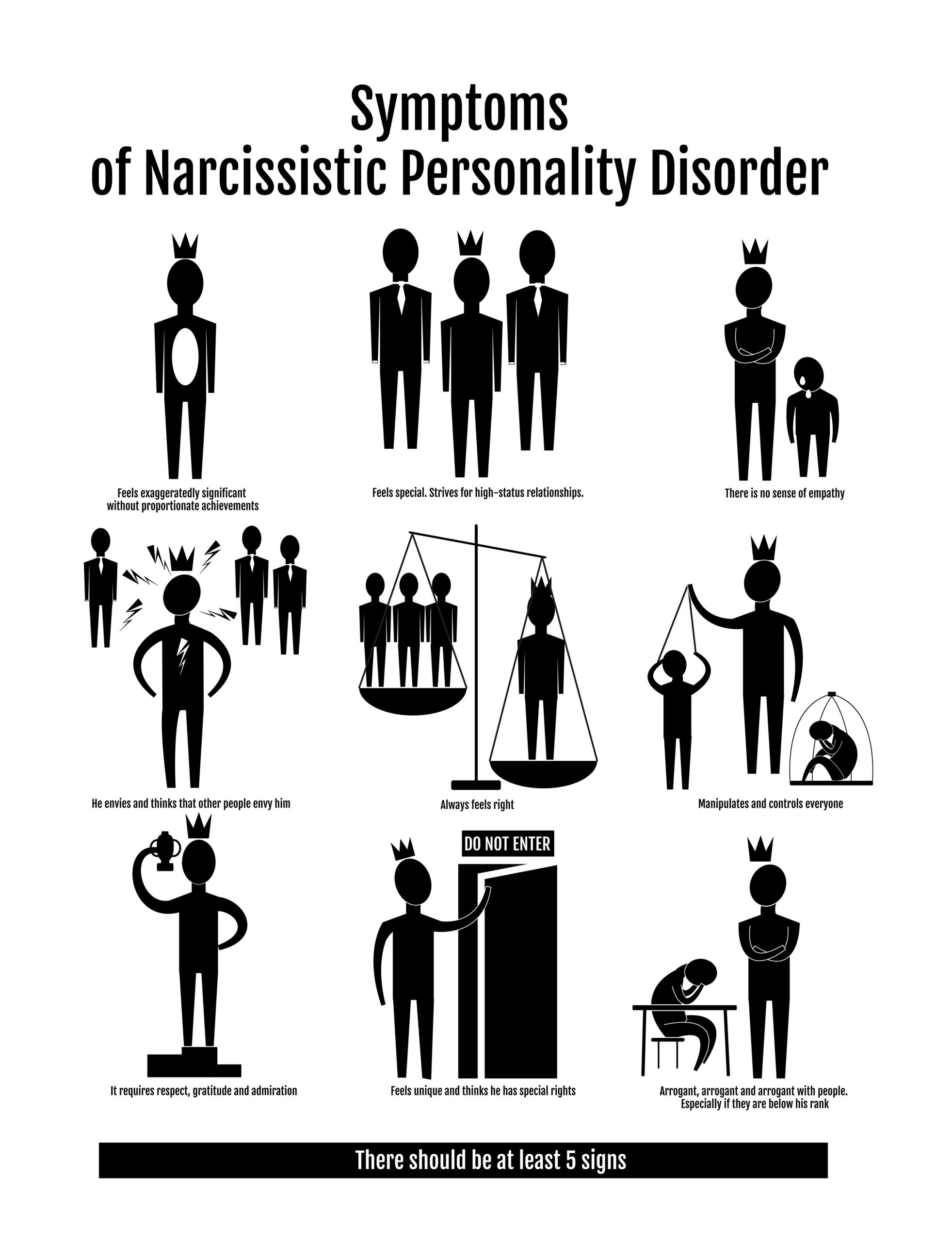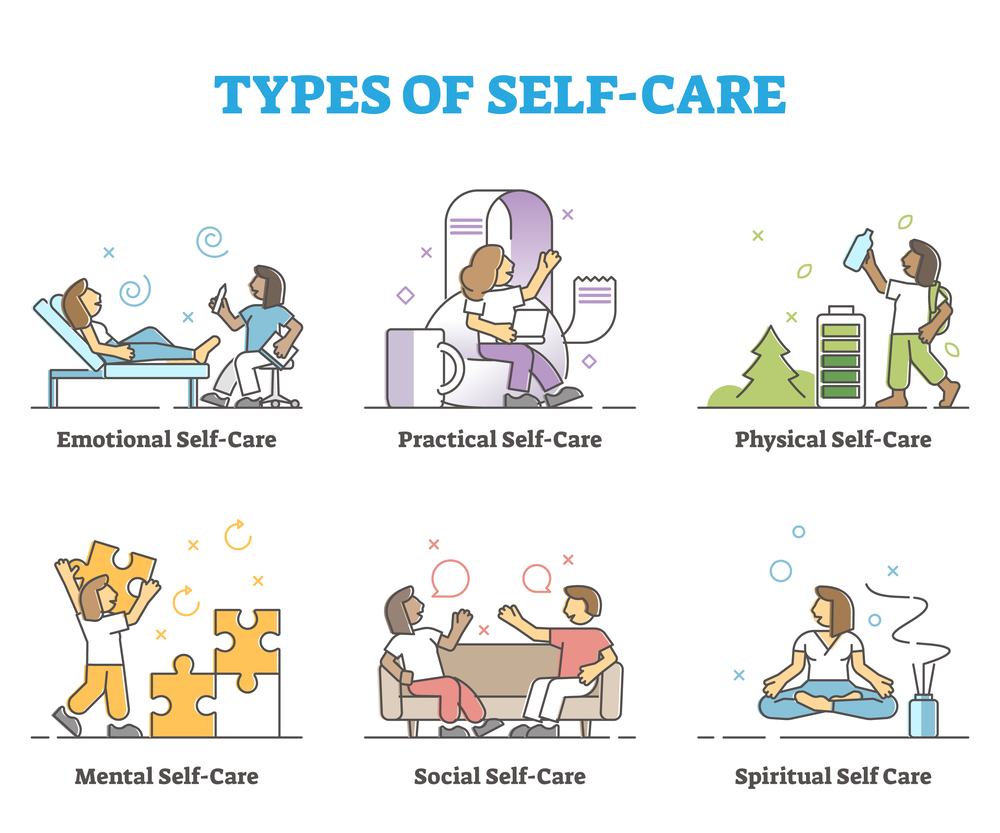Narcissist Breadcrumbing: Unraveling Manipulative Dating Tactics
 Narcissist breadcrumbing is a manipulative form of communication where someone, often with narcissistic traits, gives sporadic but enticing snippets of attention to keep another person interested without committing to a proper relationship. Predominantly, this person aims to maintain control and feed their ego by keeping others hooked. The unpredictability of these crumbs of kindness or […]
Narcissist breadcrumbing is a manipulative form of communication where someone, often with narcissistic traits, gives sporadic but enticing snippets of attention to keep another person interested without committing to a proper relationship. Predominantly, this person aims to maintain control and feed their ego by keeping others hooked. The unpredictability of these crumbs of kindness or […]Narcissist breadcrumbing is a manipulative form of communication where someone, often with narcissistic traits, gives sporadic but enticing snippets of attention to keep another person interested without committing to a proper relationship. Predominantly, this person aims to maintain control and feed their ego by keeping others hooked. The unpredictability of these crumbs of kindness or romance, followed by periods of silence or neglect, can be confusing and damaging to one's mental health.
Recognizing the signs of narcissist breadcrumbing is crucial. They may encompass inconsistent messages, sporadic flattery, and last-minute invitations more about their needs than yours. Each interaction is designed to keep you just involved enough not to move on while they avoid any real emotional investment. The implication is that you're always chasing the potential of what could be instead of focusing on the reality of the situation.
Understanding the emotional impact of breadcrumbing can help you navigate the relationship and take steps toward healthier communication. It's essential to identify manipulation tactics like love bombing followed by ghosting and to realize that digital communication makes it easier for a narcissist to maintain this harmful cycle. By learning to recognize these signs and understanding their effects, you can start to recover your self-worth and move forward.
Key Takeaways
- Narcissist breadcrumbing involves intermittent attention to keep someone interested without commitment.
- Identifying this pattern is essential for recognizing manipulation and maintaining mental health.
- Healing involves understanding the emotional impact and moving towards healthier communication.
 Understanding Narcissistic Breadcrumbing
Understanding Narcissistic Breadcrumbing
When dealing with narcissistic breadcrumbing, it's crucial to grasp the underhanded tactics used to exert control and secure narcissistic supply. Recognizing these methods is the first step in protecting oneself from emotional manipulation.
Definition and Concept
A narcissistic breadcrumb is a form of emotional manipulation where a narcissist gives you sporadic but insincere attention to keep you engaged. The term comes from leaving a trail of breadcrumbs - small, intermittent rewards, to maintain your interest without committing to a real relationship or friendship. Here's what you need to know:
- Intermittent Reinforcement: This involves occasional messages or gestures to provoke your response and maintain a connection.
- False Promises: Implied commitments or plans that will never be realized, used to keep you hopeful.
Psychology Behind the Behavior
At the heart of narcissistic breadcrumbing is a deep need for narcissistic supply - attention, admiration, and affirmation. The psychology of the narcissist involves:
- Power and Control: By managing when and how they interact with you, narcissists maintain the upper hand in the relationship.
- Self-Esteem Regulation: They bolster their ego by ensuring that individuals are always available to them.
Key Takeaway: Understanding narcissistic breadcrumbing is about recognizing it as a manipulative technique that serves the narcissist's need for power and constant validation rather than a genuine connection.
 Identifying Signs of Narcissistic Breadcrumbing
Identifying Signs of Narcissistic Breadcrumbing
Narcissistic breadcrumbing can leave you feeling confused and uncertain. Recognizing the signs is crucial for your emotional well-being.
Inconsistent Communication
- Sporadic Texts and Calls: You may notice messages that come out of nowhere after a period of silence, giving you just enough attention to keep you hooked.
- Example: Receiving a caring text after days of no contact.
- Hot and Cold Behaviors: The individual alternates between being very warm and communicative to cold and distant.
- Key Takeaway: This inconsistency is meant to throw you off balance and maintain control.
Red Flags and Warning Signs
- Unpredictable Plans: Proposals of plans or dates often do not materialize, leaving you in limbo.
- Red Flag: The talk is about "someday" rather than setting a specific time or date.
- Underlying Demands: Beware of subtle requirements for your attention or validation hidden beneath their engagements with you.
- Warning Sign: They may compliment you, but it often feels conditional based on your reactions to them.
Recognizing these behaviors can empower you to make informed decisions about your interactions with those exhibiting narcissistic tendencies.
 Emotional Impact on the Victim
Emotional Impact on the Victim
Understanding the emotional fallout of breadcrumbing by a narcissist equips you to manage its effects on your mental health. The practice can significantly chip away at your sense of self-worth and leave you entangled in a web of emotional distress.
Self-Esteem and Self-Doubt
Your self-esteem often suffers when you're the recipient of breadcrumb. Imagine constantly questioning your worth because the affection you receive is sporadic and feels like a tease. The inconsistency in attention and validation can lead to self-doubt:
- Confusion: You might wonder why the care shown is fleeting.
- Self-blame: You could believe it's your fault for not being "enough."
Key Takeaway: Rebuilding self-esteem is crucial after such an experience. Recognizing your worth is independent of the narcissist's treatment is a step towards recovery.
Anxiety and Emotional Distress
Breadcrumbing can toss you into a sea of anxiety. You're left guessing about the relationship's status, and this uncertainty is a recipe for stress. Here's how it might affect your emotional state:
- Hyper-vigilance: You might find yourself obsessively looking for signs of the narcissist's approval.
- Trauma bond: This bond fuels a harmful cycle where you seek the very validation that harms you.
Key Takeaway: Acknowledging the source of your anxiety is empowering. It's the first step towards distancing yourself from the negative impact of the manipulative behavior.
 The Role of Communication in Breadcrumbing
The Role of Communication in Breadcrumbing
Communication is the tool used to perform breadcrumbing, where you might find messages that are enticing but not substantive. Knowing how to distinguish between flirting and genuine interaction, as well as sporadic versus consistent messages, can help you navigate potentially deceptive waters.
Flirting Versus Genuine Interaction
When someone is breadcrumbing you, they often flirt in alluring ways that lack depth. You'll notice a few key characteristics in their messages:
- Use of flattering language that isn’t followed by actions.
- Promises of future plans that are vague and never solidified.
Genuine interaction, on the other hand, is marked by:
- Reciprocal sharing of personal information that builds a connection.
- Specific plans for dates or meetups that are followed through.
Sporadic Versus Consistent Messages
The pattern of communication can often identify breadcrumbing:
- Sporadic messages come out of the blue, potentially when the person needs attention.
- Ghosting periods where no communication is received, followed by a sudden flurry of texts.
Consistent messages, indicative of genuine interest, usually involve:
- Regular contact establishes a predictable pattern.
- Progressive conversations that build on previous interactions.
Key Takeaway: If you find your conversations filled with frivolous flirting and the timing of messages unpredictable, be alert to the possibility of breadcrumbing. Real connections are cultivated with consistent, meaningful exchange.
 Manipulation Tactics: From Love Bombing to Ghosting
Manipulation Tactics: From Love Bombing to Ghosting
Understanding the darker side of romantic gestures can safeguard your emotional well-being in navigating relationships. Here, we unravel complex behaviors like love bombing and ghosting that can manipulate your sense of hope and affection.
Intermittent Reinforcement
Intermittent reinforcement is a psychological strategy where rewards or attention are given sporadically to keep you hooked. In a relationship, a narcissist might shower you with affection (love bombing) one moment and then withdraw completely (ghosting), leaving you in a state of confusion and craving for those moments of kindness and warmth. This cycle can create a powerful bond and dependency, much like a gambler hopes for a successive win.
- Key Takeaway: Be aware that if affection from a partner comes unpredictably, it could be a strategy to keep you emotionally invested and may not be genuine.
Future Faking and False Hope
The term "future faking" refers to a tactic where a narcissist provides you with false promises about the future to maintain your attention and loyalty. Discussing elaborate plans or making long-term commitments gives you hope and a sense of security in the relationship. Sadly, these promises are often empty and are not intended to be fulfilled.
- Key Takeaway: Distinguish between genuine commitments and future faking by observing consistent actions that match your partner’s words over time.
 Dealing with Narcissists in Relationships
Dealing with Narcissists in Relationships
Navigating a relationship with a narcissist can be challenging, particularly when it comes to maintaining your sense of self and personal values. It requires carefully respecting your needs while managing the relationship dynamics.
Set Healthy Boundaries
You've likely realized that a relationship with a toxic person can drain your emotional energy. To protect yourself, you must establish what you will and won’t accept from your partner.
- Identify Your Limits: Define what behaviors are acceptable and which are deal-breakers. Be clear on your core values.
- Communicate: Confidently and calmly convey your boundaries to your partner. Remember, be direct but respectful.
- Enforce Consistently: When boundaries are crossed, be prepared to take action. This could be anything from voicing your discontent to stepping away from the situation.
Key Takeaway: Solid boundaries are the foundation of self-respect in any relationship, especially with a narcissistic partner.
Managing Expectations
In a relationship with a narcissist, you must adjust your expectations to align with reality. Hoping for a commitment that mirrors a conventional, empathetic partnership may not be feasible.
- Realistic Outcomes: Understand that change, if any, will be incremental and on their terms.
- Self-care Priority: Prioritize your emotional well-being. A one-sided relationship isn't sustainable without looking after your mental health.
Key Takeaway: Lower your expectations to prevent disappointment and give yourself space and peace of mind.
 Narcissistic Breadcrumbing in Digital Communication
Narcissistic Breadcrumbing in Digital Communication
Narcissistic breadcrumbing is a manipulative digital tactic involving sporadic messages meant to elicit attention without investing in a meaningful connection.
Online Dating Phenomena
In the realm of online dating, breadcrumbing is a common issue. If you're dating online, you might encounter someone sending you occasional, non-committal messages. These crumbs may include flattery or vague promises of future plans. They keep you hooked without offering a real relationship or genuine interaction.
- Examples in Dating Apps:
- Infrequent texts after initial interest
- Indirect plans ("We should do something sometime") without specifics
Social Media Platforms
Breadcrumbing occurs on platforms like Facebook and Instagram, where a narcissist might:
- Like or comment on your posts sporadically to remain in your notifications
- Send DMs or emojis without engaging in a real conversation
- Appear supportive, yet remain superficial in interactions
Key Takeaway: Be cautious of breadcrumbing on social media. Notice inconsistent and surface-level engagements on your content or direct messages. It might be a sign of a narcissist maintaining a presence without truly investing in friendship or relationship.
 Recovery and Moving Forward
Recovery and Moving Forward
After experiencing the draining cycle of narcissist breadcrumbing, it’s crucial to focus on recovery and the journey toward healthier relationships. Your well-being matters; with the right approach, you can move forward stronger and more informed.
Seeking Professional Help
Connecting with a licensed mental health professional stands as a critical step on your path to recovery. A therapist can:
- Provide personalized guidance: Your situation is unique and deserves tailored healing strategies.
- Help untangle emotions: Complex feelings may arise, and a therapist can assist you in processing them healthily.
Key Takeaway: Open up to counseling to lay a solid foundation for your recovery journey.
 Self-Care Strategies
Self-Care Strategies
Self-care enhances your resilience and promotes healing. Consider these strategies to support your well-being:
- Establish Boundaries: Clearly define what you are comfortable with and communicate these boundaries to others.
- Regular Exercise: Even moderate physical activity boosts mood and energy levels.
- Healthy Eating Habits: Nurture your body with a balanced diet to support mental health.
- Quality Sleep: Prioritize getting enough rest; it aids emotional regulation and cognitive function.
- Social Support: Lean on friends and family who understand and encourage your journey to healthier dynamics.
Key Takeaway: Self-care is your toolkit for fostering a stronger, happier you.
Recognizing and Responding to Breadcrumbing
In the complex dynamics with a narcissist, identifying and effectively dealing with breadcrumbing is essential. This involves subtle but deliberate communication tactics.
Confronting the Narcissist
It's important to approach confronting a narcissist about breadcrumbing with strategic preparation. They often engage in this behavior to elicit a particular response from you, offering sporadic reassurance, promises, or affection to keep you hooked. Here’s how you can confront them:
- Be clear and concise: State your observations factually. For example, "I've noticed that you reach out sporadically but don't follow through on plans."
- Maintain your composure: Stay calm and avoid emotional outbursts; they may use these as leverage in the dynamic.
- Set boundaries: Be firm about acceptable communication and treatment for you.
Key Takeaway: Confronting a narcissist requires clarity, emotional control, and boundary-setting.
No-Contact and Low-Contact Rules
After recognizing breadcrumbing behavior, it’s essential to decide whether to pursue no-contact or low-contact with the narcissist.
No-Contact:
- Preparation: Gather any personal items from the narcissist and arrange logistics so there is no need for future contact.
- Blocking Communication: Block the narcissist from all forms of contact to remove the temptation or possibility of breadcrumbing.
- Support System: Build a network of supportive friends or professionals who understand your decision.
Low-Contact:
- Structured Communication: Determine specific scenarios under which you'll respond, such as emergencies or child-related matters, and stick to them.
- Neutral Responses: Use neutral language in your interactions. For instance, instead of saying, "You always fail to follow up," say, "I have not received any information about this."
- Self-Care: Prioritize your well-being by engaging in activities that reinforce your self-esteem and worth.
Key Takeaway: Choosing between no-contact and low-contact involves preparation, clear boundaries, and a focus on your own well-being.
Beyond Personal Relationships: Breadcrumbing in Professional Situations
In professional settings, breadcrumbing can be a subtle manipulation tactic that causes confusion and imbalance. Recognize these patterns to protect your career growth and well-being.
Identifying Toxic Behavior at Work
Toxic behavior in the workplace often goes unnoticed until it negatively impacts you or your team's morale and productivity. Here are signs that someone may be breadcrumbing professionally:
- Infrequent acknowledgments of your contributions with no substantial follow-up or support for career advancement.
- Promises of potential opportunities, like promotions or special projects, never materialize.
- Sporadic communication that keeps you engaged just enough but doesn't lead to concrete action or results.
Remember, it's time to reassess the situation if the pattern feels manipulative and disrupts your workplace peace.
Key takeaway: Spot breadcrumbing at work by looking for inconsistent praises, empty promises of advancement, and unreliable communication.
Maintaining Professional Boundaries
Setting and maintaining boundaries is crucial for a healthy work environment. Here’s how you can protect yourself from being misled:
- Communicate clearly about your career goals and expectations.
- Seek feedback actively, especially if praise is sparse or non-committal.
- Be cautious of vague promises—ask for specifics and timelines.
- Trust your instincts; if an interaction feels disingenuous, it probably is.
- Establish a support network of colleagues who respect and uphold transparent communication.
Firm boundaries dissuade manipulative tactics and foster a climate of respect and straightforwardness.
Key takeaway: Protect against professional breadcrumbing by clearly stating your expectations, seeking concrete feedback, and cultivating a supportive network.
Conclusion
Recognizing that you've been the target of narcissistic breadcrumbing is a significant step. You've learned to see through the intermittent messages and hollow promises that lack sincerity and a genuine connection. Your next steps are crucial for healing and moving forward.
- Self-reflection is a powerful tool. Ask yourself what you truly seek in a relationship. You deserve someone who respects and values you, not manipulates your emotions.
- Pursue a fulfilling relationship. Real love is built on mutual respect, kindness, and consistent effort. Relationships should elevate your life, not leave you second-guessing your worth.
- It might be challenging, but moving on from someone who employs breadcrumbing is essential for your well-being. Detach and redirect your energy towards people who bring positivity into your life.
- Achieving closure is an inside job. Accept that you may never get the closure you desire from the narcissist, and instead, find closure within yourself by embracing your worth and knowing you can thrive without their validation.
Key Takeaway: Let this experience be a stepping stone to a healthier, happier you. You've recognized the signs, and understood the reality of the situation, and now you're equipped to step into a future where you're appreciated for who you are. Remember, this is about your journey to self-empowerment and forming meaningful connections on your terms.
Frequently Asked Questions
The FAQs will guide you through the nuances of narcissistic breadcrumbing, offering insights into the psychological games at play and practical advice for handling manipulative tactics.
Breadcrumbing, often fueled by a narcissist's need for attention and control, serves as a tactic to maintain a grip on their target. It's a power play aimed at reinforcing their self-perceived superiority by keeping you guessing about their intentions.
Key takeaway: Narcissists use breadcrumbing to satisfy their craving for control and validation.
Handling breadcrumbing involves self-awareness and firm boundaries. Start by recognizing the behavior, and then:
- Confront the individual with clear examples of their actions.
- Communicate your expectations for consistent, transparent communication.
- If the pattern continues, consider distancing yourself to preserve your well-being.
Key takeaway: Clear communication and firm boundaries are your tools against breadcrumbing.
Love bombing is an intense display of affection and adoration used to win you over quickly, whereas breadcrumbing is the sporadic giving of attention to keep you hooked without committing. Love bombing often precedes breadcrumbing as the relationship shifts from overwhelming to minimal effort.
Key takeaway: Love bombing's intensity fades into the inconsistency of breadcrumbing, marking a shift in the narcissist's manipulation strategy.
A covert narcissist's breadcrumbing might be harder to spot due to their subtle approach. Signs include:
- Infrequent but well-timed communication that reignites your hope.
- Vague promises of future plans that never materialize.
- Their engagement increases when they sense you pulling away.
Key takeaway: Covert narcissists cleverly time their minimal efforts to keep you invested.
Breadcrumbing manipulates your expectations and hope, while gaslighting attacks your perception of reality, making you doubt your memory, judgment, and sanity. Breadcrumbing is about inconsistent commitment; gaslighting distorts your sense of truth.
Key takeaway: Breadcrumbing plays with your hope; gaslighting undermines your reality.
How might a narcissist react to an individual employing the grey rock method as a defensive strategy?
When you respond unemotionally, the grey rock method makes you less appealing to a narcissist. They might initially increase their manipulative tactics to elicit a response, but over time, they may lose interest and seek a new target more responsive to their games.
Key takeaway: By becoming unresponsive, you may discourage a narcissist's breadcrumbing efforts as they seek more reactive victims.

